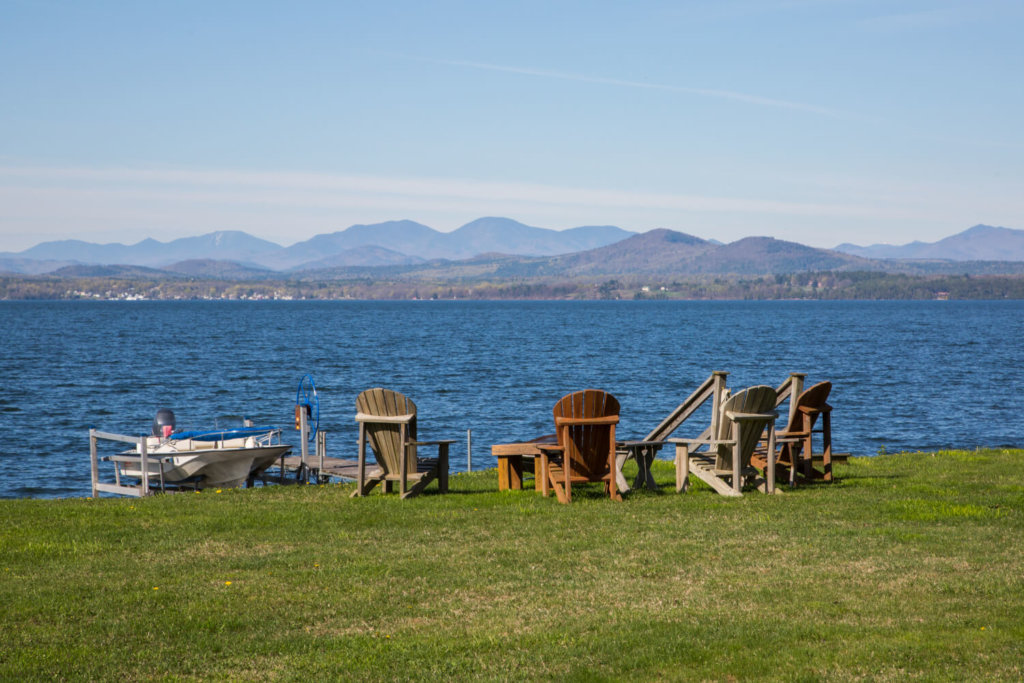Malletts Bay debacle raises concerns about Thompson’s Point

The recent legal battles and evictions of leaseholders on Malletts Bay in Colchester have some Charlotte citizens asking if similar events could unfold in their own town. Like the Colchester evictees in question, residents of Thompson’s Points own buildings upon land that they lease. But how firm is the lease upon which those houses stand, and how does life differ for Bay and Point leaseholders?
The debacle in Malletts Bay has been years in the making, but the trouble essentially started in 2008 when homeowners sued the landowners, the Mongeon family, to gain possession of the land on which their homes were built. The gambit ultimately failed and permanently soured relations between lessor and lessees. When flooding in 2011 compromised a seawall and embankment, the homeowner’s association failed to satisfactorily address the damages, and in 2012 the Mongeons sued the association to recover damages and to evict the leaseholders for failing to maintain their properties. The Chittenden County Superior Court ruled in the Mongeons’ favor and awarded $135,000 in damages, but said “forfeiture [of the lease] would be especially inequitable, and a sanction entirely out of proportion to the lease violations.” Both sides appealed to Vermont Supreme Court, and in 2015 that ruling was overturned and the tenants were evicted.
Though just a few miles down the lake, Thompson’s Point seems to exist a world apart. To start with, the entire Point is owned by the Town of Charlotte and has been since the 1830s when it was originally used as a poor farm—a farm maintained at public expense to support and employ persons in need. At the end of the 19th century, that use evolved, and the town gradually began leasing the land and allowing lessors to build camps on the properties. Over the next few decades this gave rise to Thompson’s Point as it exists today: a tight-knit community of mostly seasonal camps and cottages.
Absent is the rancor and contention that characterized relationships in the Malletts Bay dispute. Leases are renewed every 20 years and updated in accordance with new regulations. A Thompson’s Point lease comes with a fairly strict set of guidelines regarding what lessors can and cannot do with their properties without the proper permit, all in an effort to protect the shoreline, the lake and the quality of life for other leaseholders. Yet, Point residents seem proud of and content with their Point lifestyle. According to Rick Detwiler, who has been a Thompson’s Point lessee since the early ’90s, there has been little to disturb the waters of Point life. “The relationship [with the town] has been great,” says Detwiler. “The town takes care of the road and they don’t bug us.”
Detwiler says the only downside is the rising cost of maintaining a camp on the Point. A 2011 reappraisal of his property led to only a minor increase in the fair-market value of his home, but a significant increase in rent. “We’re basically paying five or six times as much as when we bought the place.”
Thompson’s Point is, in fact, a significant cash cow for the Town of Charlotte. In 2016, the town collected more than $800,000 in rent or 29 percent of the town’s total revenue for that year. Says Detwiler, “I think there is an argument to be had that this is a good deal for everybody.”
While rising costs have made the Point an increasingly exclusive enclave, it seems likely that the town has a vested interest in maintaining good standing with Point residents. Charlotte Selectboard Chair Lane Morrison corroborates this, saying that he could recall no instances of eviction at the Point or see any immediate reason the town would try to evict tenants “as long as they pay the tax bills, like any other property in town.”

